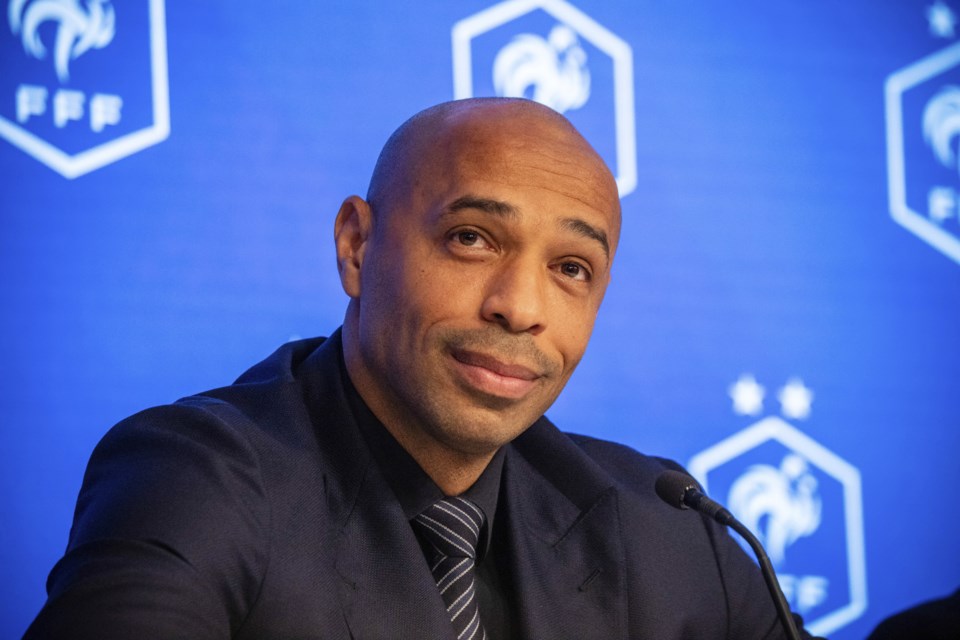PARIS (AP) â Thierry Henry, who won the 1998 World Cup and the 2000 European Championship with France and is Arsenal's all-time highest scorer, has opened up about the fact he âmust have been in depressionâ during his soccer career.
The 46-year-old former forward says he had a spell early in the coronavirus pandemic when he was âcrying almost every dayâ.
Henry, who now coaches France's under-21 team, has linked his struggles to his past and a search for approval, having grown up with a father who was critical of his performances on the field.
Speaking on the Diary of a CEO podcast, Henry said: âThroughout my career, and since I was born, I must have been in depression.
âDid I know it? No. Did I do something about it? No. But I adapted to a certain way. That doesnât mean Iâm walking straight, but Iâm walking. Youâve got to put one foot (forward) and another one, and walk. Thatâs what Iâve been told since Iâm young.
âI never stopped walking, then maybe I would have realised. (But during) COVID, I stopped walking. I couldnât. Then you start to realise.â
Henry, who scored 228 goals in all competitions in two spells with Arsenal, says he had a âcapeâ for when he âfelt a struggle comingâ during his career, and that after retiring in 2014 he then was âtrying to find a way to wear that capeâ.
He was on the Belgium coaching staff and managed Monaco before taking charge at Montreal Impact in late 2019.
Henry said: âThen COVID happened. I was in isolation in Montreal, and not being able to see my kids for a year was tough.â
During that time he was âcrying almost every day for no reasonâ, saying: âTears were coming alone. Why I donât know, but maybe they were there for a very long time.
âTechnically, it wasnât me, it was the young me. (Crying for) everything he didnât get, approval.â
Henry said his father was âvery particular at times on how I was as a playerâ, saying: âAs a little boy it was always, âYou didnât do that wellâ. So obviously when you hear that more often than not, thatâs whatâs going to stay.â
Reflecting on when he went back home and was about to return to Montreal in early 2021, he said: âI put my bags down to say bye and everybody starts to cry, from the nanny to my girlfriend to the kids.
âFor the first time...I am like, âOh, they see me, not the football player, not the accoladesâ, and I felt human.
âI put my bags down and I stopped coaching in Montreal. I said, âWhat am I doing? Going to go again into a situation just because of your pursuit of pleasing people? They love Thierry, not Thierry Henry.â I stayed, for the first time I felt human...and it felt nice.â
___
AP soccer:
The Associated Press




